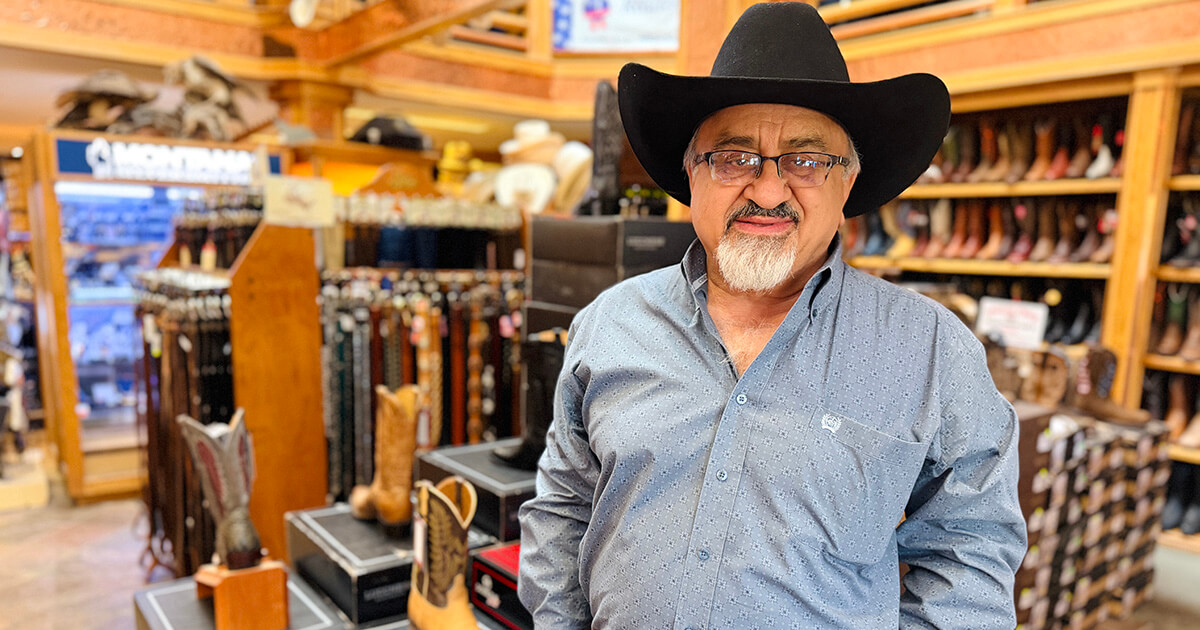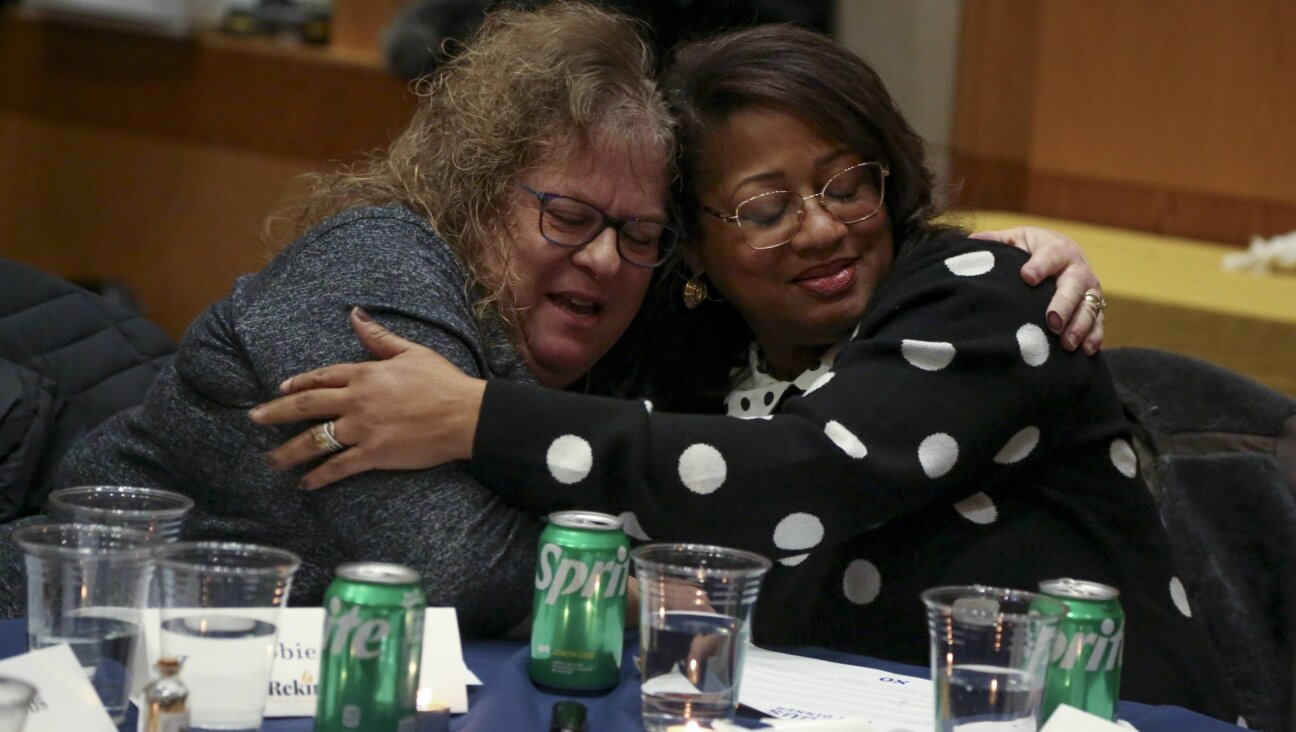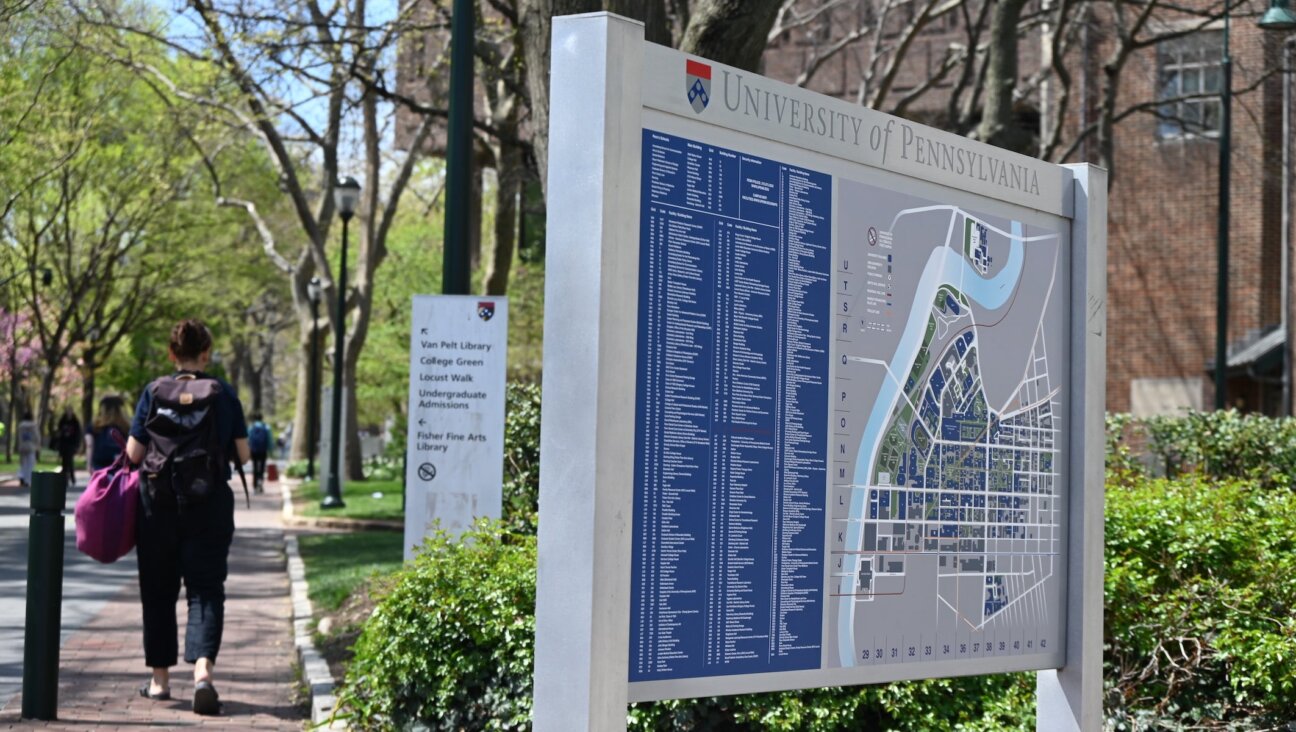Yeshiva Hosts Rabbi’s 75th Birthday Bash
Yeshiva University’s March 20 tribute to 75th birthday celebrant Rabbi Arthur Schneier — spiritual leader of Park East Synagogue, president of the Appeal of Conscience Foundation and originator of Y.U.’s newly dedicated Rabbi Arthur Schneier Center for International Affairs — may have been among the about-to-be-deconstructed Plaza hotel’s “last hurrah” dinners.
Among the 450 guests and participants were Arye Mekel, Israel’s consul general; Dan Gillerman, Israel’s ambassador to the United Nations; John Whitehead, founding chairman, Lower Manhattan Development Corporation; Bruce Mosler, president and CEO, Cushman & Wakefield; Y.U. President Richard Joel; John Catsimatidis, chairman and CEO of the Red Apple Group, Inc. (Gristede’s Foods); public relations maven Howard Rubenstein, and a kvelling Elisabeth Schneier.
Henry Kissinger touted the rabbi’s skill in brokering relationships in a “complex… political world.” Norman Lamm, Y.U.’s chancellor, recalled, “When Arthur came to Yeshiva University as a young refugee…. had circumstances been different, he might have made a great secretary of state and Kissinger a great rabbi.” Senator Hillary Rodham Clinton credited Schneier with “a legacy that will live on about how we should be acting in the world on behalf of conscience and freedom.”
“Rabbi, statesman, humanitarian, loving father and loving grandfather to my children.… We are son-father co-workers… serving the Jewish people,” Rabbi Marc Schneier declared. “We may have our differences in style, but not in fundamentals.” Daughter Karen Dresbach’s teary-eyed tribute included a vignette of her dad en route to a diplomatic summit, detouring to see her compete in a tennis match.
An emotional Arthur Schneier recalled the burning of his synagogue on Kristallnacht and the horror of Auschwitz. “One way of promoting the revival of the decimated Jewish people,” he said, “was the revival of Torah.” Schneier’s vow is to “try to repay God’s kindness that the Nazis did not kill my love for God and humanity.”
* * *|
Before leaving for Rome to attend Pope John Paul II’s funeral, Schneier told me that when he first met Karol Wojtyla — in Warsaw, in 1967 — he “was touched by [the future pontiff’s] sensitivity to the Shoah” and by his recognition that antisemitism was “the greatest sin against humanity.” Schneier also gave me a copy of a March 5 letter from the Vatican’s secretary of state, Angelo Sodano, sent via Cardinal Edward Egan, which reads: “His holiness Pope John Paul was pleased to learn that Yeshiva University and the Appeal of Conscience Foundation will honor you on the happy occasion of your 75th birthday…. The Holy Father invokes upon you and your loved ones an abundance of divine blessings.”
* * *|
In 1991, I felt compelled to write to the pope about the nameless Polish woman who, during the winter of 1939-1940, had risked her life to save my mother and me during our flight from Nazi-occupied Warsaw. I also included a copy of “The Merit of a Young Priest,” written by Yaffa Eliach, a Judaic studies professor at Brooklyn College. The story is part of her “Hasidic Tales of the Holocaust.” A true story of baby boy Shachne Hiller, who, on November 15, 1942, was entrusted to a Catholic couple, Mr. and Mrs. Josef Jachowicz. At great risk to themselves, the couple cared for him. When his parents did not return in 1945, Mrs. Jachowicz brought the child to the local priest to be baptized. Realizing that he was Jewish, the priest told Mrs. Jachowicz that she must honor the request that in the event of the parents’ death, the child be reunited with his family in America. Little Shachne was later adopted by an aunt in Canada. He is now Stanley Berger, a successful businessman and an observant Jew. The young priest was Karol Wojtyla.
A letter from Msgr. T. Mariucci at the Vatican informed me that “His holiness Pope John Paul II… wishes you to know that he appreciates the sentiments which prompted you to write to him and he invokes God’s blessings upon you.” With the letter came a signed photo of the pope, which now hangs on my office wall.
In 1991, Eliach — whose Tower of Life photo montage is at the United States Holocaust Memorial Museum, located in Washington, D.C., and who wrote a book about her hometown, “There Once Was a World: A 900 Year Chronicle of the Shtetl of Eishyshok,” (Little Brown & Co., 1998) — told me that in October 1981, Rabbi Israel Spira of Bluzhov, then in his 90s, told her that God had rewarded the gallakh (priest) for saving a Jewish child. “‘That’s why he was made pope,’ said the rabbi, who died the day before his 100th birthday.” Eliach added: “See, you do a favor for a Jew and he always remembers. I hope the pope is listening and he does us another favor — he recognizes Israel.” He did! He even left a kvitl (message) at the Kotel.
Last week, I revisited the story with Eliach. She said that when she called the pope about the story, “He told me, ‘I love the Jewish people’ and that he uses the story wherever he goes.”
* * *|
Metro-Goldwyn-Mayer studio heads Irving Thalberg, L.B. Mayer and Samuel Goldwyn (Jews who did not change their names but hired Jewish actors who did) are among the multiethnic cast of characters in Elizabeth Wong’s thought-provoking new play, “China Doll,” presented by the Pan Asian Repertory Theatre and directed by theater founder Tisa Chang. Inspired by the rise and fade-out of exotic film star Anna May Wong (Rosanne Ma), “China Doll” chronicles such emotional episodes as Wong’s anguish at seeing the once-in-a-lifetime role of O-Lan, wife of Wang Lung (played by Paul Muni, né Muni Weisen- freund), in MGM’s 1937 adaptation of Pearl Buck’s “The Good Earth,” go to Austrian Jewish actress Luise Rainer (who won an Academy Award for her performance). Gary Cooper, Douglas Fairbanks Sr., and Wong’s friend and champion Marlene Dietrich (Sandy York) are seen in cameo appearances in this modest, touching and unsettling look back at a racist Hollywood. The production, which runs only through April 24, is worth the trip to the West End Theatre, located at 263 W. 86th St.















